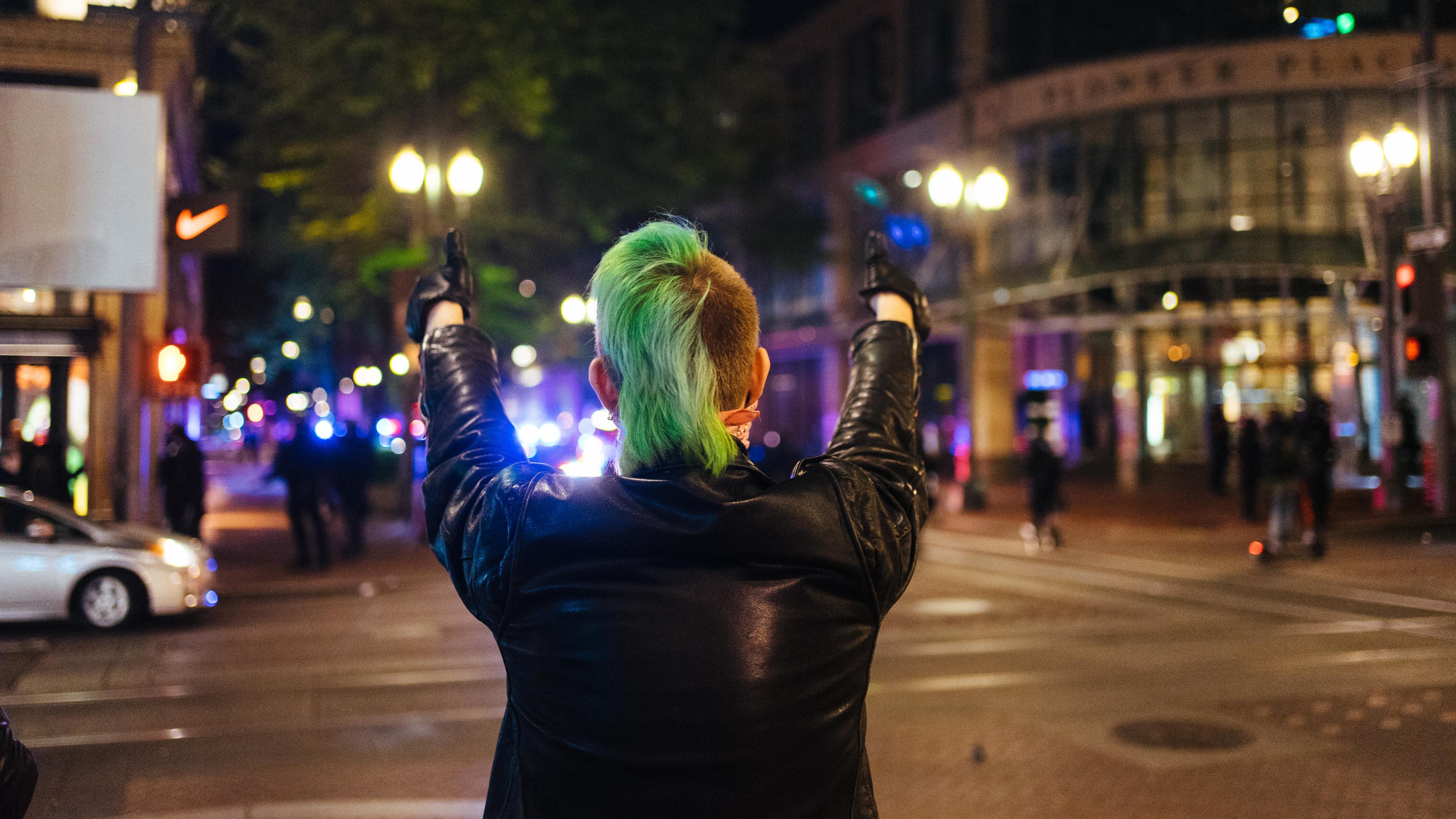On Sunday night, Oregon Gov. Kate Brown proposed a partnership of regional law enforcement to ease tensions in the streets of Portland following the fatal shooting of a Trump-supporting protester.
Today, the sheriffs of Clackamas and Washington counties rejected a key component of Brown's plan: They refused to send officers into Portland, saying they would not police protests in a county that won't prosecute people who break the law.
Shortly after the two sheriffs refused Brown's request, the Gresham police chief did the same, and the associations representing the state's sheriffs and police chiefs also preemptively rejected the idea of policing Portland.
Clackamas County Sheriff Craig Roberts said Brown announced her plan without asking him about it.
"Had Gov. Brown discussed her plan with my office, I would have told her it's about changing policy, not adding resources," Roberts said in a statement. "Increasing law enforcement resources in Portland will not solve the nightly violence and, now, murder. The only way to make Portland safe again is to support a policy that holds offenders accountable for their destruction and violence."
Without naming anyone, Roberts left little question he was referring to a policy by new Multnomah County District Attorney Mike Schmidt to drop charges for all protest-related misdemeanors and the felony charge of rioting. That policy shift has deeply divided Oregon's law enforcement community.
Roberts described the decision to drop charges as resulting in anarchy.
"The same offenders are arrested night after night," he wrote, "only to be released by the court and not charged with a crime by the DA's Office. The next night they are back at it, endangering the lives of law enforcement and the community all over again."
Schmidt declined comment on the sheriffs' position. "We are supportive of Gov. Brown's efforts and we join her and others focused on bringing an end to the violence occurring in Portland while supporting the constitutional rights of everyone," said district attorney's spokesman Brent Weisberg. "Our office always remains committed to prosecuting criminal offenses such as arson and physical violence."
The responses of the sheriffs also made clear that Brown has waded into a long-standing tension over whether Portland officials adequately defend police officers from legal jeopardy for using force. Last year, both the Washington and Clackamas county sheriff's departments refused to allow their officers to work in Portland for fear they would face lawsuits.
"The lack of political support for public safety, the uncertain legal landscape, the current volatility combined with intense scrutiny on the use of force presents an unacceptable risk if deputies were deployed directly," wrote Washington County Sheriff Pat Garrett.
The sheriffs did offer this olive branch: They would cover the duties of Oregon State Police in their counties while state troopers were deployed to Portland. The Oregon Association of Sheriffs and Chiefs of Police didn't even go that far. Instead, they issued a joint statement that amounted to a protest of Portland's politics. "Abandoning law enforcement, or the need for policing, is not working," the statement read. "It has only shown that it undermines the rule of law and puts our community at greater risk."
Brown's office chose to focus on the positive.
"The governor's plan to protect free speech and bring the violence and arson to an end in Portland is meant to allow for local flexibility in supporting each other as we all collectively deal with the difficult situation in Portland." Brown's spoksman, Charles Boyle told WW. "It is up to each county to determine the personnel and resources they have available to volunteer for this effort. We appreciate Clackamas County's commitment to assist Oregon State Police with calls for service in Clackamas County while OSP is supporting the city of Portland, for example."
